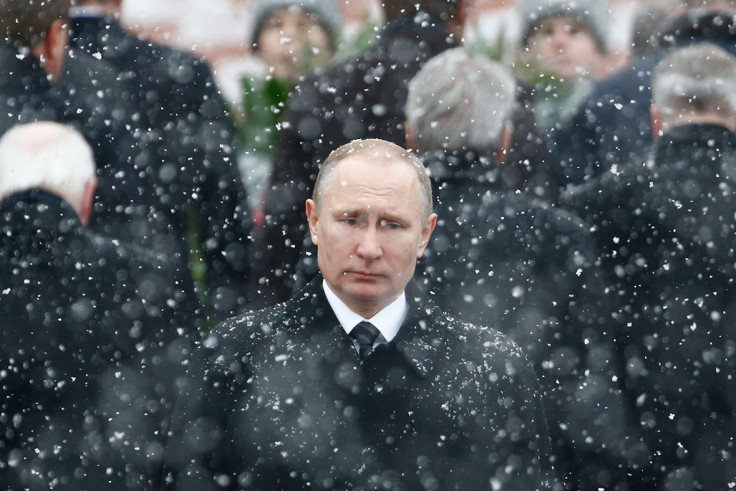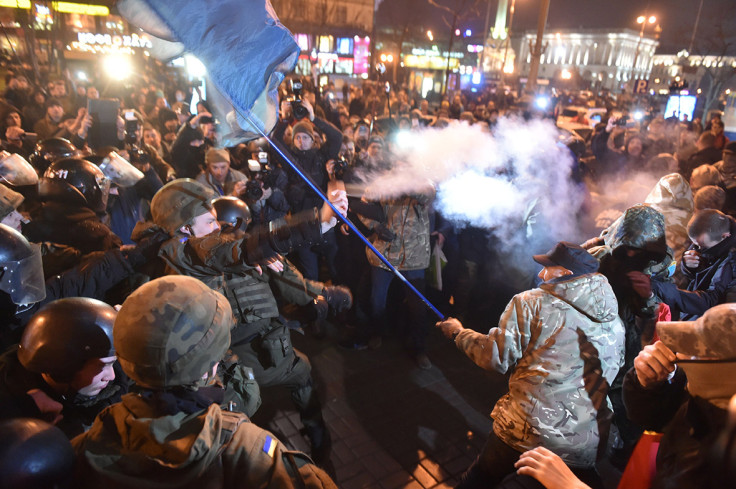Why do a vast majority of Russians say their country shouldn't fight to lift US sanctions?
People say they would rather face a continuing rise in prices than give in to America.

More than three quarters of Russians believe their country shouldn't fight to have American and other western economic sanctions lifted, even though they threaten the country's long-term prosperity.
The sanctions, affecting a wide swath of Russian businesses and wealthy individuals, were imposed in 2014 by America and its European allies following Russia's annexation of the Crimean region of Ukraine. Even more economic sanctions came early this year after US intelligence agencies concluded Russia influenced the 2016 presidential election.
Although these sanctions have severely depressed the Russian economy, today 76% of Russians believe it "is not worth fighting for the abolition of western sanctions."
The feeling is up from 2015 when 57% of Russians agreed with the same sentiment, according to numbers tracked by the Russian Public Opinion Research Center. The respondents agreed that the sanctions do "mutual harm" to both Russia and the western nations that impose them.
While some in Russia's economy have gotten a boost with the election of US President Donald Trump — oligarchs have gained as much as $29bn (£23.8 bn) due to increases in the value of Russian currency and stocks — the country is looking at an era of low-growth stagnation.
The Russian ruble sank sharply against the American dollar when the sanctions were announced in 2014. While recent increases only put the Ruble at near half the value it held in 2013, the currency still offers less value around the world, making it much harder for Russia to import quality goods from elsewhere.
Some cast doubt on the idea that Russians are actually happy with the current situation. "I think most people would be quite anxious to give the correct answer to a telephone enquiry asking: 'what do you think about sanctions?' said Sir Andrew Wood, the UK's former ambassador to Moscow, now an Associate Fellow of the Russia and Eurasia Programme at Chatham House.
"They're also being asked to say at the same time whether or not they would correct Russia's foreign policy," Wood said of the poll. "But you wouldn't want to say too readily in an answer saying 'well, I think we ought to give Crimea back.'"
The poll showed that 59% of Russians said they are "willing to endure some difficulties in the current economic situation for the continuation of Russia's foreign policy in Ukraine."

A good indicator of Russia's long-term economic health lies in the fact that it isn't seeing high amounts of investment in or out of the country. "I'm not aware of any investment in Russian assets," said Wood, nor "any rise in investment Capital expenditure and Capital assets by Russian firms, which I think is a better indication of the general background."
Russian media, Wood said, aren't saying "much about sanctions and the effect it's had on investment."
According to the poll Russians don't seem to mind. Two years ago, 52% of Russians told the pollster that they think the sanctions have made things worse in Russia. Now only 27% said the same. Their complaints, the polling showed, focused mostly on the rise in prices for goods and fall in their financial position.
The Kremlin holds a different position on the sanctions. "The [Russian] government does not like them at all, no question about that," said Wood.
In spite of President Trump's positive approach to Russian President Vladimir Putin, and insistence over the summer he would "would be looking at" lifting the sanctions on Moscow as soon as he became president, Trump doesn't appear to be in a position to do much about it.
If Trump administration attempts to remove the sanctions, Wood said, "I don't think that Congress is going to be at all happy."
"The United States and the rest of us wouldn't get anything for it," he said, "unless you believe always being nice to Russia no matter what they do is good policy. In my experience you don't get anything in return for that."
Yet something is going to have to give sooner or later Wood said. "The long-term projections remain essentially stagnation," he insisted. "Even if they got up to 2% growth, that wouldn't begin to close the gap between countries in the west and Russia."
© Copyright IBTimes 2025. All rights reserved.





















